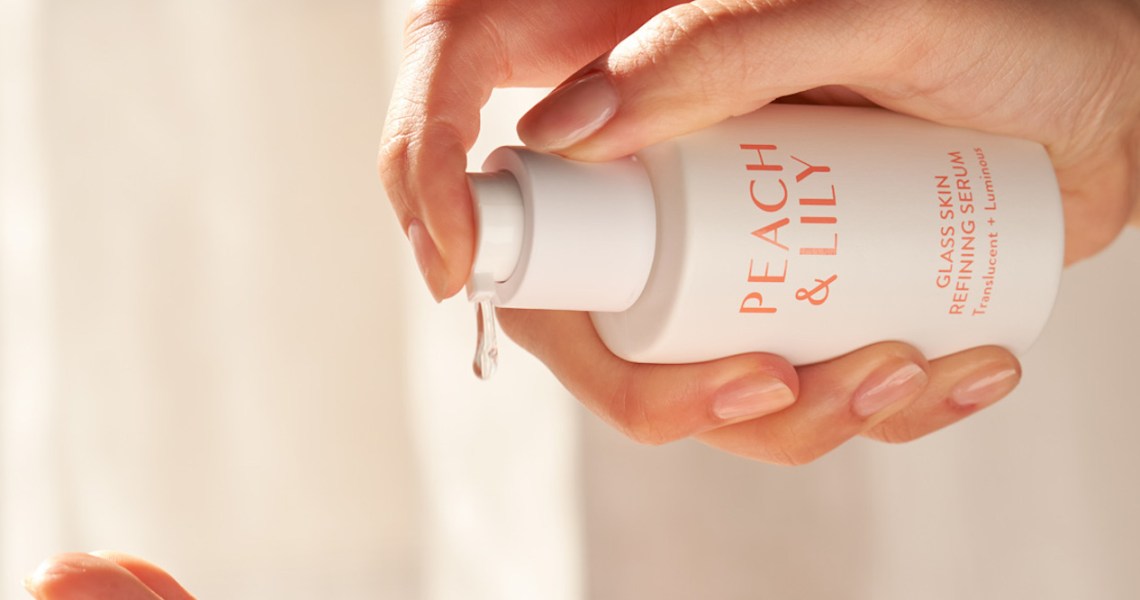Over the past five years, K-beauty brand Peach & Lily has quickly ascended to become a household name, nearing $100 million in annual net sales, as of 2023, in the process.
Peach & Lily debuted from the now-11-year-old K-beauty retail platform of the same name. Peach & Lily also has a sister brand called Peach Slices, which offers playful, acne-focused K-beauty products. The strategies that have propelled Peach & Lily include a consistent focus on sustainable growth and profitability, a consumer-centric approach to events and retail, and product innovation, said Alicia Yoon, founder of Peach & Lily.
Yoon broke down this strategy following Peach & Lily’s “Power of &” campaign in November, which spanned social, OOH and experiential marketing channels. A touring bus called the Peach Party Bus visited L.A. and NYC, where consumers could win prizes and receive personalized skin consultations with Yoon and Peach & Lily educators. As to whether Peach & Lily is looking to sell itself to strategic acquirers, Yoon said that it is not something the team is actively pursuing but is open to entertaining opportunities.
“Even though we have grown rapidly, we have never made rapid growth a goal,” she said. “It’s always been about deep loyalty and building a solid foundation.”
Focusing on consumer-facing events
Peach & Lily maintains a 20:1 ratio of consumer events versus influencer events. Notable past events include a 2019 pop-up designed to gather real-time consumer data to use in product development. The recent “Power of &” campaign featured five hand-selected real customers. The intention behind the campaign was to celebrate the brand’s milestone while shining a light on consumers who have fueled the brand’s rapid success. Featuring real customers in campaigns and inviting them to splashy events has become more commonplace as brands try to envelope people into a brand lifestyle and demonstrate egalitarianism.
“The experience was our way of saying thank you to our loyal community for their continued support and for all the ways that they inspire us,” said Jade Mackley, vp of marketing at Peach & Lily.
Furthermore, Peach & Lily holds virtual beauty masterclasses. In 2024, the brand plans to explore augmented reality, as well as virtual event rooms with gaming functions, allowing it to scale events and make virtual options more entertaining.
In 2018, Yoon visited 100 different Ulta Beauty stores in four months to connect with sales associates and meet customers. These days, the brand has 12 full-time retail account executives who manage another 150 contractor field team members. Yoon attributed this approach to the brand becoming the No. 2 most productive prestige skin-care brand at Ulta Beauty, based on sell-through, and expects to be the retailer’s No. 5 largest prestige skin-care brand, based on sales, both in 2023. Until 2022, Peach & Lily only had 18 inches of shelf space at the retailer, but it’s expanding into three-foot shelves between 2023 and 2024.
“We try to go a mile deep and an inch wide,” she said. “We don’t want to be everywhere with everything and only have superficial partnerships, [and we don’t want] a low level of sales everywhere to collectively reach a big number. You can achieve the same number of sales with a tight distribution.”
Product innovation over product buzz
Peach & Lily launches two to six products annually, allowing the brand to tightly focus on marketing those products for the whole year. It also notably owns all of its formulations and intellectual property, helping to further underscore the brand’s value. In the early years, Yoon said, the brand spent 10x more on product development than marketing.
Yoon said Peach & Lily maintains a “dynamic” portfolio approach to product development, allowing the brand to work on multiple items at once and launch whichever is next to be finalized. For 2024, the Peach & Lily team is thinking less about maximizing buzz with new product launches, Yoon said. It will instead focus on educating consumers to easily integrate the undisclosed new products into their routine.
“[Marketing] is not just about getting customer attention and raising awareness, but it’s about elevating our consumers and doing things with them in mind,” said Yoon.




